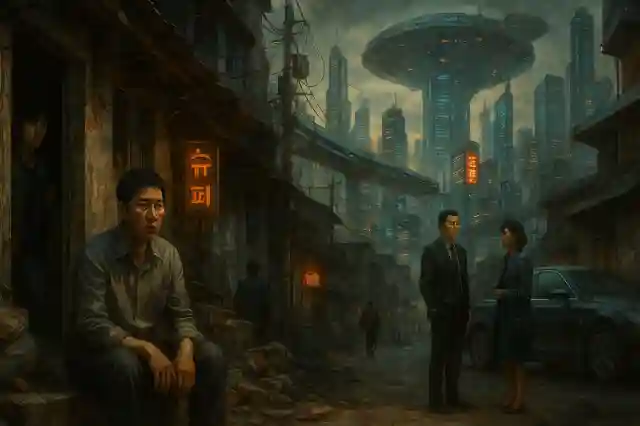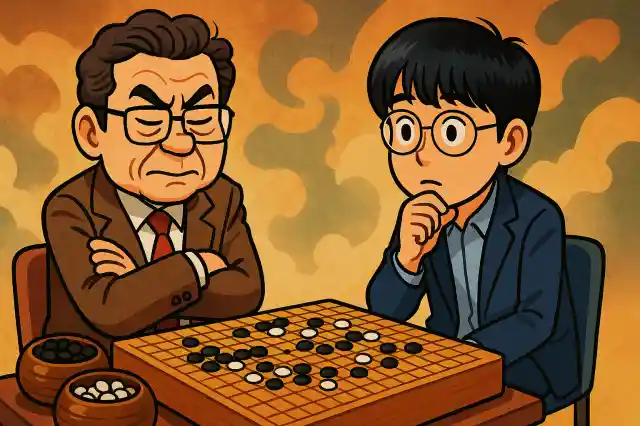The Enduring Legacy of Bong Joon-ho: From Parasite to Mickey17
How a South Korean Auteur Redefined Global Cinema
Welcome to our exploration of Bong Joon-ho’s cinematic journey! Whether you’re a longtime admirer of Parasite‘s razor-sharp social commentary or curious about his bold leap into sci-fi with Mickey17, this deep dive reveals why Bong remains one of cinema’s most vital voices. Let’s unpack how his films hold up a mirror to society while pushing artistic boundaries.
Key Takeaways
- Parasite made history as the first non-English film to win Best Picture at the Oscars
- Mickey17 continues Bong’s tradition of blending genre thrills with philosophical depth
- Labor exploitation and class struggle remain central themes across his filmography
- Bong’s global influence paves the way for more Korean directors on the world stage
Table of Contents
- The Cultural Earthquake of Parasite
- Bong’s Sci-Fi Evolution: Decoding Mickey17
- Dissecting Bong’s Signature Themes
- What’s Next for Korea’s Master Storyteller?
The Cultural Earthquake of Parasite
Bong’s 2019 masterpiece didn’t just win awards – it shattered barriers. By becoming the first non-English film to claim Oscar’s top prize, Parasite forced Hollywood to confront its linguistic biases. The film’s universal themes of class warfare resonated globally, proving social commentary could be both commercially viable and artistically profound.
Beyond its record-breaking box office, the film sparked urgent conversations about wealth disparity. Bong’s genius lay in wrapping these heavy themes within a genre-defying package – part thriller, part dark comedy, part family drama.
Bong’s Sci-Fi Evolution: Decoding Mickey17
With Mickey17, Bong ventures into uncharted territory while retaining his social conscience. The film’s premise – a clone repeatedly reborn to perform dangerous missions – serves as a potent metaphor for modern labor exploitation. Early reports suggest it combines the director’s trademark humor with dystopian world-building.
The film’s box office dominance in North America and 2 million+ Korean viewers in its first 10 days prove Bong’s global appeal remains strong. By reuniting with Parasite‘s cinematographer and composer, he maintains his distinct visual poetry while embracing sci-fi’s grand scale.
Production Insights
- Genre-blending approach: Merges body horror with corporate satire
- Practical effects: Balances CGI with tactile set designs
- International cast: Features both Korean and Hollywood actors
Dissecting Bong’s Signature Themes
From The Host‘s environmental warnings to Snowpiercer‘s caste system allegory, Bong’s films share DNA:
| Film | Central Conflict | Social Critique |
|---|---|---|
| Parasite | Class warfare | Wealth disparity |
| Mickey17 | Identity vs labor | Corporate dehumanization |
| The Host | Family vs system | Government incompetence |
This thematic consistency makes Bong’s work instantly recognizable, whether he’s directing a crime thriller or space epic. His ability to find humanity in bleak scenarios separates him from contemporaries.
What’s Next for Korea’s Master Storyteller?
With Mickey17 cementing his sci-fi credentials, industry insiders speculate about Bong’s next move. His expressed interest in historical dramas suggests potential examinations of Korea’s complex past. Whatever the genre, expect his trademark blend of social insight and entertainment to remain central.
The director’s success creates opportunities for Korean filmmakers globally. As medical dramas and other genres gain international traction, Bong’s trailblazing work proves local stories can achieve universal relevance.
Conclusion
From Parasite‘s staircases to Mickey17‘s cloning chambers, Bong Joon-ho continues to challenge audiences while redefining cinema’s possibilities. His films ask uncomfortable questions: What makes us human? How do systems shape our lives? As he prepares his next act, one truth remains – in Bong’s world, entertainment and enlightenment aren’t mutually exclusive.
Food for thought: How might Bong’s success influence the next decade of global filmmaking?


